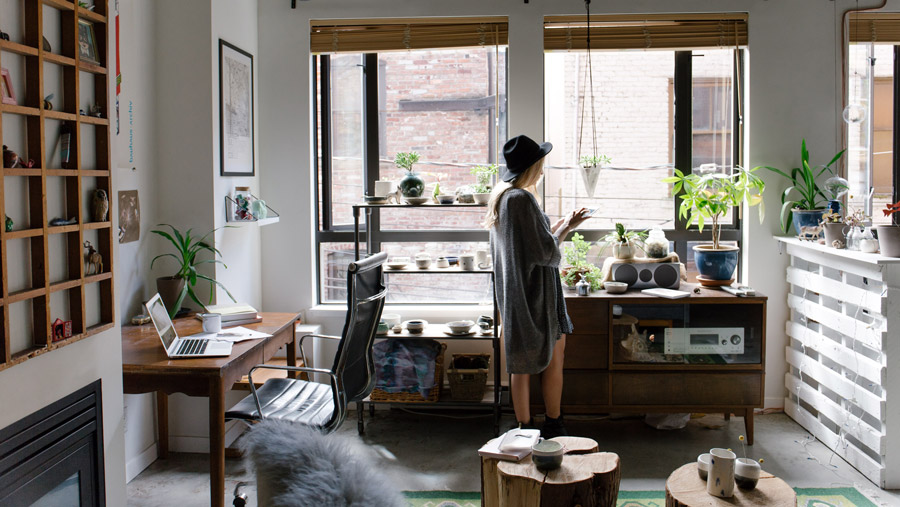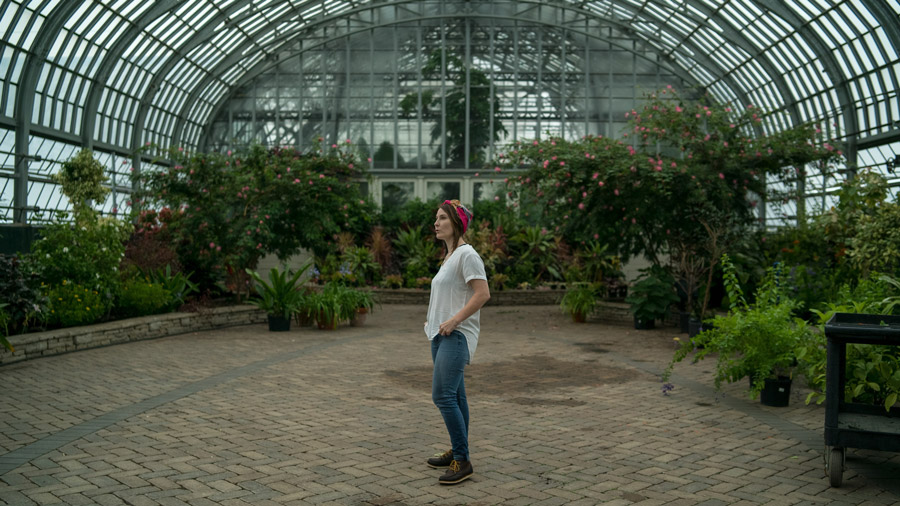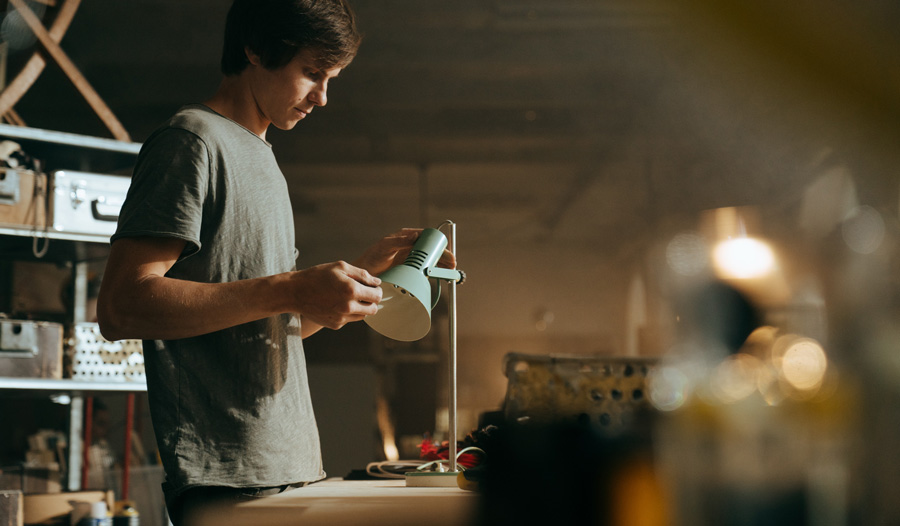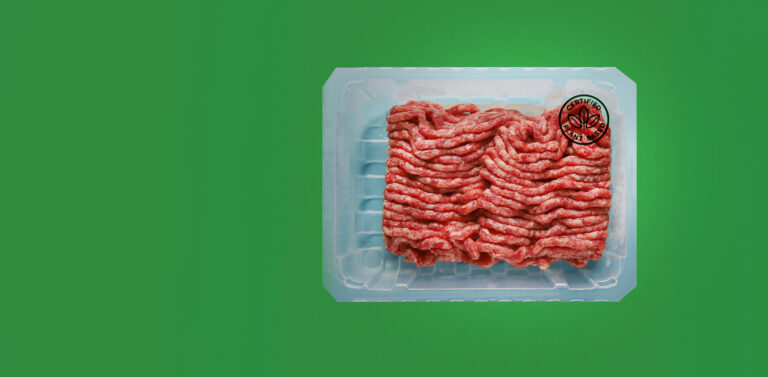Living on the west coast of Canada, my family and I woke up to choking smoke that drifted north from the raging wildfires south of us repeatedly this September. It’s likely not a surprise to anyone in California, Oregon and Washington that concern about environmental issues has hit an all-time high. Reading posts and messages from friends living in danger zones, I could feel the new spike in fear translating into panic. We described what we saw from our windows as apocalyptic. New research from BCG shows this concern is spread even wider – 90% of consumer respondents said they were equally or more concerned about environmental sustainability after the COVID-19 outbreak.
The United Nations and other prominent leaders (most recently Inger Anderson, Under-Secretary-General of the UN and Executive Director of the UN Environment Programme at the World Circular Economy Forum in Sept. 2020) are describing climate change now not as a threat to the planet (the planet will be fine) but an imminent threat to humanity.
Ohhhh shit.
Do you want to understand how climate change is influencing people and the actions they take?
I do too. I just want to talk about it in a way that doesn’t further divide us. In a way that doesn’t cause feelings of defensiveness, hopelessness or hypocrisy. In a way that doesn’t expect ‘all or nothing’ action or make people feel they have to change who they are. This is not another article designed to instill guilt about your role (or lack thereof) in ‘solving’ climate change. Figuring out how to talk about climate change in a way that isn’t divisive really matters to me. I agree with Dr Renee Lertzman, pioneer of climate psychology, in this article in The Guardian when she says that anyone with a public voice has a responsibility to act as a guide (not a doomsayer or cheerleader). Writing this article is my way to hopefully get that right.
It wasn’t until I started really learning about climate change and sustainability for my work that it became clear to me that 72% of global carbon emissions come from the production of the products we buy and what we consume at home – electronics, clothes, food, packaging, gas and energy we use every day. Since that light bulb went on for me, I’ve had many conversations in my own family about what we can do…and they often end with someone stomping off in anger. Trying to explain to my husband and my kids why the carbon emissions embedded in the production of new clothing (and the waste in the fashion industry) means we should buy as much as we can secondhand, often ends up with one of my kids (age 12 and 8) in tears. They want new Nikes because that’s what ‘everyone at school’ has. That might surprise you because my older son is Gen Z. You might think from what’s written about Gen Z that I would tell you he’s the eco-warrior in the family. I’ve found that while my kids are aware the impact of climate change is getting closer and closer (just like for many adults), the root problems and solutions remain invisible to them, too abstract…and systemic.
A new empathy for our diverse motivations.
I am starting to wake up to the fact that everyone does not need to be consciously motivated by climate change to be part of a climate-friendly culture. Not everyone needs to identify as an eco-warrior or be driven by green values. Interesting idea? To explain this further, we can look at a motivation-based segmentation (an approach we call Jobs to Be Done), conducted originally by Sitra, The Finnish Innovation Fund, called Smart Motivation Profiles. A team at The Sound and our partner, Vancouver based non-profit, OneEarth, is conducting similar research in North America. We’re bringing a set of businesses along with us on the journey towards this open-source insight, including Canada’s largest community credit union, Vancity.

We’re finding that the majority of people’s everyday choices and actions are motivated by ‘me, myself and my family’. Although many people are concerned about climate change, fewer make daily choices because of it.
The reality is even the direct threat to humanity will not motivate the masses to become eco-warriors. People either have more clear and present problems (especially marginalized people and those living in poverty), find it hard to act because of systemic barriers or do not know what actions to start with when ‘Save Humanity’ is on their to-do list. The science of and solutions to climate change (like the Circular Economy and Regenerative Agriculture) are not easy to understand or act on for many of us.
“I am a 23-year-old woman – like, I am expected to look a certain way […] and I have to buy things, like fast fashion, that aren’t sustainable so then I can find a life partner”
Let that sink in. Some people feel they have to choose between making sustainable choices and having a life partner. To me, that young woman’s experience of feeling caught between a rock and a hard place is crushingly sad.
I have to recognize here that there are growing numbers of people who do deeply understand climate science and what they need to do to be part of the solution…and are overcoming systemic barriers to go zero waste, shift to entirely plant-based diets and choose a car-free life. These ‘front runners’ (as Sitra calls them) are showing that those choices can be a better way to live. Some are able to fully commit to action and that momentum is building to create social norms that will change our culture. Sustainability influencers like actor Mark Ruffalo are actively transforming the doom and gloom approach of the environmental movement with a vision of the abundance waiting for us on the other side (case in point: check out a new Eco-Conscious Home Makeover Series ‘Go Green’). (Note to self: I should tell my kids The Hulk, Ruffalo’s character in The Avengers, buys only #secondlife clothing. And that just makes sense because he rips through it like none other…).
But for everyone else, right now, we need empathy. That is, to take a different perspective, to see the value we all have in our collective defense against climate change.
Many people are really good at actions that are solutions to climate change. They just don’t do them because of climate change.
They are motivated by something deeply embedded: by tradition and frugality, by fitness, by supporting kids to make healthy choices, by avoiding cancer and by spirituality.
Motivated by tradition and frugality…
We learned that a Millennial father with a ‘Traditional Voice of Reason’ motivation, was very skilled at repairing and extending the life of things that others might throw in the garbage.
“Growing up, my parents repaired things. I have bought all the tools. Rather than spending money on the new furniture, I fix the old and make it last longer.”
(Side note: learning about this repair motivation really gave me a greater perspective on the diverse motivations within my own family. Remember I wrote about trying to convince my husband to buy second-hand clothes? Well, this repair motivation made me realize how many times he’s put patches on our thermarests to extend the life of them by literally years. And he is good at doing it. He feels gratified by it. I, on the other hand, have repaired our thermarests…exactly zero times).
Motivated by fitness…
We learned that a young woman who identified as an athlete is a committed bike-share user because it made her feel fitter and stronger to ride a bike over any other mode of transportation.
Motivated to support kids in healthy choices…
We noticed that one busy parent (in school full time and working night shifts as a caregiver) is really proud and supportive of her son who wanted to be a vegetarian, despite others in her African family telling her he would not grow up strong without eating meat.
Motivated by spirituality…
An older man living as a minimalist because of a spiritual belief that things don’t buy happiness. (Interestingly, he also had a surprising Hedonistic motivation when we asked about his frequent plane travel to ‘foreign’ countries).
Motivated to avoid cancer…
An older woman avoided plastic because both her parents had cancer and she had done an immense amount of research to understand the ingredients in plastics and what they may be doing to her body.
We marvelled at how all these people in our study did these things gladly – and felt a strong sense of gratification that reinforced both the choice and their sense of identity. They aren’t eco-warriors doing ALL the things…but what they are doing is part of the climate solution.
Lighting our own fires starts with what we are good at and what we love.

What if each of these people’s ‘job’ in the fight against climate change is to be the supportive parent, stuff-repairer, bike sharer, minimalist or healthy plastic avoider? What if that job, the job they want to do, is enough to start with? What if we as a society could make each others’ choices feel valued, supported and celebrated? What if we can help people act sustainably in the ways they are most motivated towards, for their reasons.
So the question to ask ourselves now is, what do you LOVE to do? What are you good at? What makes you feel good? It’s likely that, somewhere in your answer, there is a way to do it that is also having a positive impact on the climate, waste or biodiversity crises.
If you are good at repairing stuff, boost your skills with lessons from iFixit or if you are really good, join their community to teach others how to fix their stuff.
If you are a parent and want to support your kids in being vegetarian, help them learn how to cook at home. Or you might want to invest in your own health by eating more plant-based meals during the week. Here’s a great Vegan Bolognese recipe from Jillian Harris to get you started, (I added ground Beyond Meat to boost the protein).
If you feel healthier as a result of avoiding plastic, seek out small, local retailers in your community like Nada Grocery or research some alternatives like Abeego Beeswax Food Wraps.
If you love fashion and design, shop at secondhand stores like Upcycle Clothing Collective, or make your own clothes with treasures from the sustainable deadstock fabric marketplace Queen of Raw.
Are you a cyclist? How can you get what you need on Sideline Swap (where athletes buy and sell their gear) to bike for even more trips and get even fitter? Consider joining a community organization like Hub Cycling with the collective power to influence the building of more safe cycling infrastructure.
With the holidays coming up and possibly more time at home due to COVID-19, what are you good at making that your family and friends would love as gifts? Check out the SoKind registry for more ideas.

We don’t need to change who we are.
I believe that by leaning into just one of these things (or many more like them), we will find our motivations grow stronger, and connect with others who share our values and interests. It does not require changing who you are…it requires doing what you love.
We’re counting on you. But it’s the system too.
It appears that COVID-19 has actually provided the conditions for some new and different motivations that result in our living lighter on the earth. And some of us are privileged enough to be able to pause and ask questions about what society we want to see on the back end of this pandemic. Many of us have been motivated to support local businesses rather than shipping all our consumer goods through global supply chains – and that choice is also a climate solution.
It’s not all good news though: the grounded planes and empty streets may be contracting our footprint but they are also causing so much suffering. As the Global Footprint Network says ‘this is not what we had in mind’ in achieving sustainability’ – instead, they’re calling for intentional changes by design that build a better world.
To rapidly scale our climate solutions, OneEarth holds that it will take both individual actions as well as systemic change: “We need to build bridges between the two that enable reciprocal and reinforcing relationships.”
So, in our next SOS article about sustainability and the circular economy, we’ll shine a spotlight on some incredible innovations, created via collaboration across systems and building bridges to enable individual action.
But for now, I’ll leave this with how I found a way forward: wanting to ‘live lighter’ but my twelve-year-old son wanting to fit in. Instead of going to Value Village to buy used or Nike.com to buy new, we compromised with the app Poshmark. He was able to have the same experience as browsing new online (and the anticipation of a package arriving at home). But with my stipulation he gave some lucky shoes a second life, he found a used but pristine pair of Adidas sneakers for $50. They arrived with a mini box of Smarties and a personal note that said: “Enjoy your new shoes :)”
Now, he’s lit his own fire.
Author: Lindsey Boyle. Contributors: Michael Alexander, Greg Raposa and Shira Beder.



